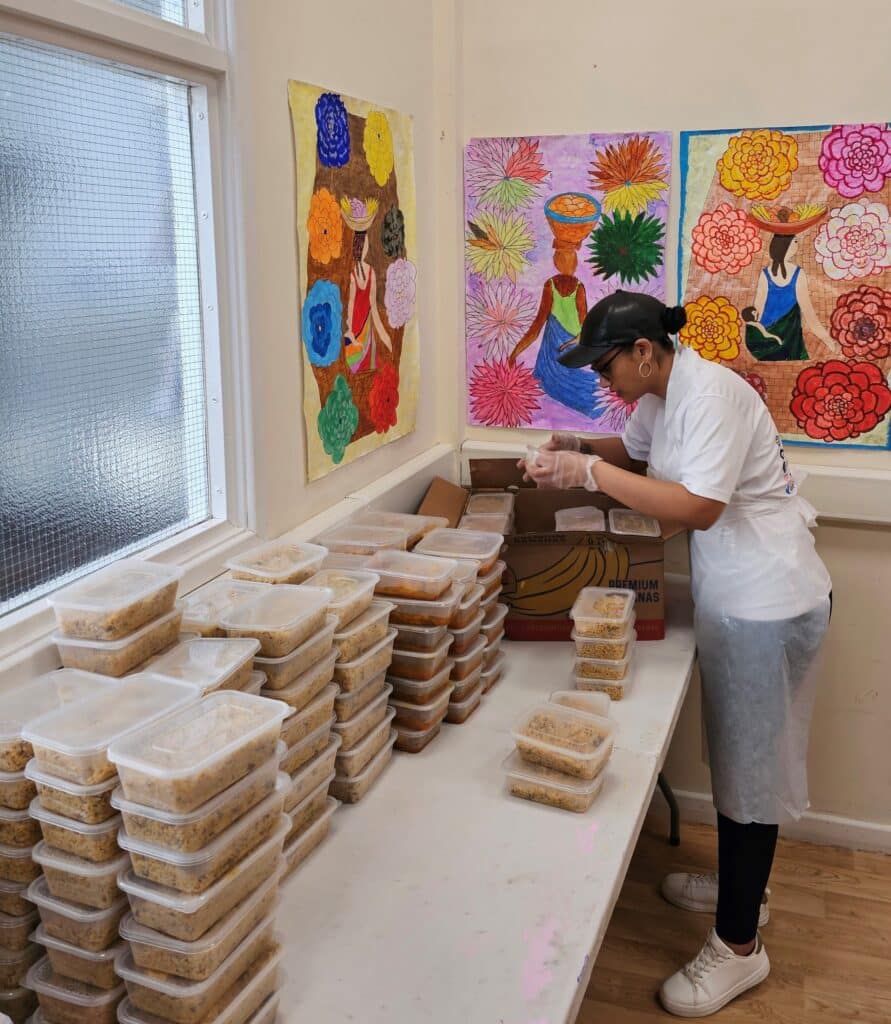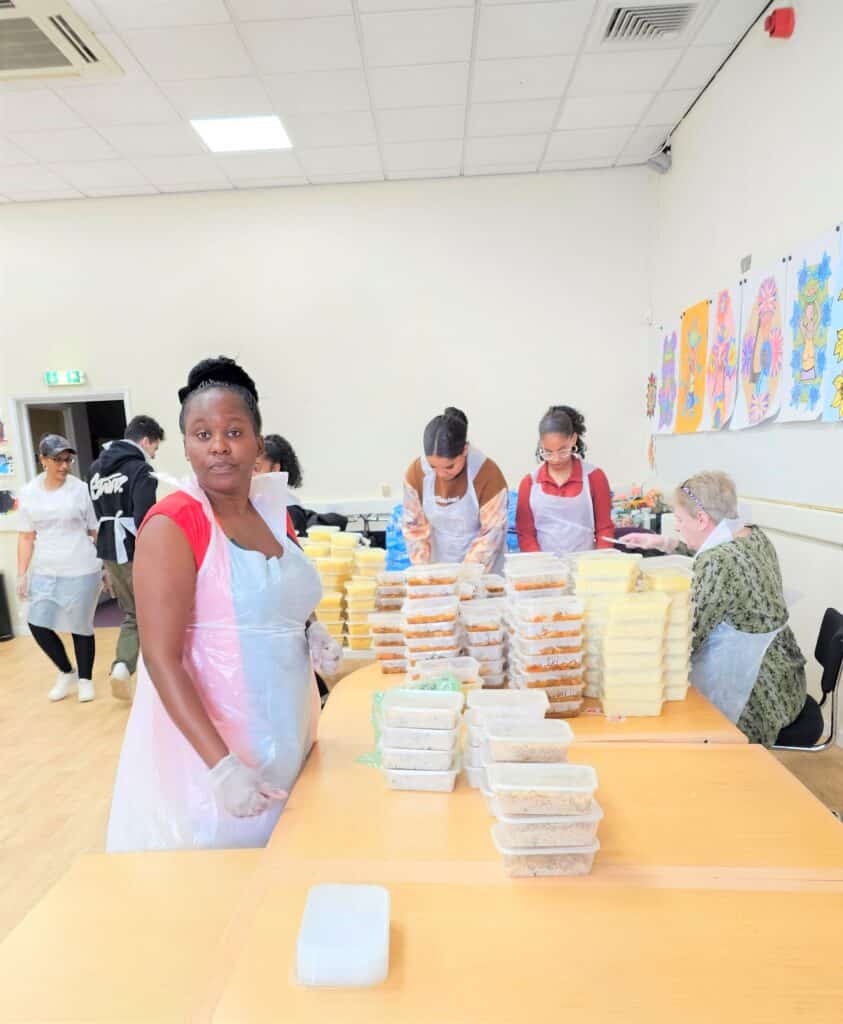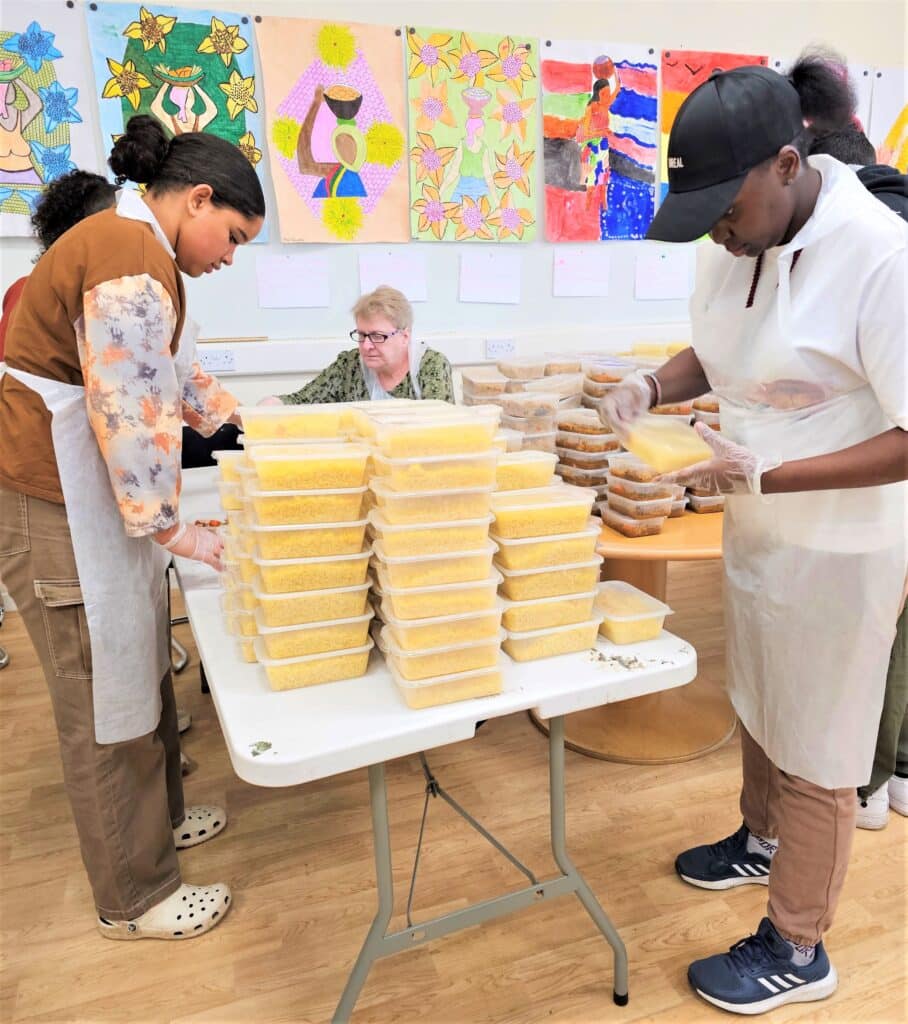
By Peter Makossah
As the cost of essential food staples is soaring through the rooftops across the globe coupled with the skyrocketing cost-of-living, scores of people are hungry than ever before and this Ramadan, a staggering 828 million people worldwide don’t know where their next meal will come from.
In the United Kingdom, and in Nottingham in particular, those in the ummah, whose homes and livelihoods have been greatly desecrated and sullied by the economic hardships emanating from the high cost of living are simply struggling to make ends meet in this holy month of Ramadan.
It is therefore against this background that Mojatu Foundation, a Nottingham based charity organisation, buoyed by the sheer need to help the needy fasting have embarked on noble acts of benevolence and mercy by distributing food to those fasting.
Since the beginning of the holy month of Ramadan, Mojatu Foundation has been distributing food to the needy but fasting faithful’s households around Nottingham as well as hotels that are occupied by asylum seekers.

Last Friday, on Good Friday, the day Christians commemorates the death of Jesus Christ who was crucified on a cross, Mojatu Foundation staff, accompanied by their families and friends came together once again and distributed hundreds of packs of food stuffs to various households, hotels turned into asylum seekers accommodation in various locations in the city.
The distributed food packs included in them rice, chicken, assorted fruits and bottled water.
Mojatu Foundation Operation Director Angela Wathoni said: “Ramadan is a very important time of huge significance to our Muslim brothers and sisters around the world, and therefore, it is important for everyone to show kindness as they fast and having a personal spiritual commitment with the heavenly father.”

She added: “Giving to others holds spiritual significance in Islamic teachings and we all know that the British Muslim community are incredibly generous with their generosity, and we can reciprocate that generosity in this time of Ramadan.”
Wathoni expressed great appreciate to the staff of Mojatu Foundation, their families and friends for committing themselves in helping pack the food stuffs and distributing.
She said: “I cannot thank the Mojatu family enough for their unflinching and unwavering support. Their contribution is enormous, and I am proud of each and every one taking part in this great service of charity.”

Prophet Muhammed (May Peace Be Upon Him) put it right when he said: “Whoever feeds a person breaking his fast will earn the same reward as him, without anything being lessened from the reward of the fasting person.”
Ramadan is observed to honour the fourth pillar of Islam, known as Sawm.
As per the history of Ramadan fasting, there are several reasons why Muslims are required to observe Sawm, including to demonstrate self-control and restraint, cleanse their bodies, be reminded that some people do not have access to food and go hungry every day, be more compassionate and grateful for what they have in life but more importantly to strengthen their bond with Allah.
Mojatu staff, Julius Mwangi, who was part of the team packing food stuffs said by giving food to the fasting, it, means ensuring that those most in need and lack food during Ramadan will enjoy a nutritious meal after a hard day of fasting.

Mojatu Foundation is a Charitable Incorporated Organisation (CIO) and works to empower and support Black, Asian and minority ethnic (BAME) communities in Nottingham at risk from ongoing prejudice and whose needs are often overlooked.
Mojatu’s work tackles discrimination and helps these communities who often experiencing racial inequalities to have the opportunities, skills, and tools to feel they can participate in the wider community.
These, includes, providing new migrants and refugees with the skills and training they need to integrate into life in the UK among many others.
What is Ramadan?
Ramadan is the ninth month in the Islamic lunar calendar.
Every healthy adult Muslims is expected to fast during the month of Ramadan from dawn until dusk, and this, therefore, means that those who are fasting abstain from eating and drinking but also stay away from any immoral acts and anger.
Other acts of worship such as prayer, reading the Qu’ran and charity are also encouraged during the holy month.
When does Ramadan start?
Ramadan officially begins when the month of Shaban, the eighth month of the Islamic (Hijri) calendar, ends.
This year, the holy month of Ramadan began on Thursday March 23rd, 2023, and the exact timing is but based on the sighting of the moon.
Ramadan ends at the sighting of the moon and at that point, Eid al-Fitr officially begins at the start of the Islamic month of Shawwal, the tenth month of the Islamic (Hijri) calendar.
This year, Ramadan is expected to end on the evening of Friday 21st April 2023, depending on the sighting of the moon.
The origins of Ramadan
It is believed that Prophet Muhammad received the revelations in around the year 622 A.D. and at that time, he and his followers lived in Medina after they faced fierce persecution in Mecca when they tried to spread the words of Allah.
At this time, the weather was particularly hot, and this influenced the name of Ramadan when it was first revealed.
Ramadan means ‘burning heat’ in an ode to the time of the year it was first revealed, and this time of year marries up with Laylat al-Qadr, which happened some 12 years prior.
The teachings of Ramadan
Ramadan is observed to honour the fourth pillar of Islam, known as Sawm.
As per the history of Ramadan fasting, there are several reasons why Muslims are required to observe Sawm, including to demonstrate self-control and restraint, cleanse their bodies, be reminded that some people do not have access to food and go hungry every day, be more compassionate and grateful for what they do have and more importantly to strengthen their bond with Allah.
“Ramadan is a very important time of huge significance to our Muslim brothers and sisters around the world.”
Angela Wathoni
Mojatu Director of Operations




